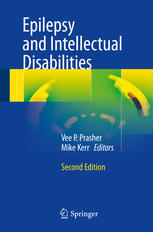

Most ebook files are in PDF format, so you can easily read them using various software such as Foxit Reader or directly on the Google Chrome browser.
Some ebook files are released by publishers in other formats such as .awz, .mobi, .epub, .fb2, etc. You may need to install specific software to read these formats on mobile/PC, such as Calibre.
Please read the tutorial at this link: https://ebookbell.com/faq
We offer FREE conversion to the popular formats you request; however, this may take some time. Therefore, right after payment, please email us, and we will try to provide the service as quickly as possible.
For some exceptional file formats or broken links (if any), please refrain from opening any disputes. Instead, email us first, and we will try to assist within a maximum of 6 hours.
EbookBell Team

4.4
82 reviewsThis second edition of a successful book provides updated clinical and research knowledge, including information on the licensing of new antiepileptic drugs. All chapters are updated to reflect present accepted practice. New chapters highlighting the importance of the genetic aspects of epilepsy, nonpharmacological treatments, and the impact of epilepsy on families and carers have been added.
Ongoing developments in the general population, which will more likely than not become relevant to the intellectually disabled population, are discussed. The impact of epilepsy on the person themselves and their carers is acknowledged, and person-centred treatment programs with a multifaceted team approach are proposed.
This book is aimed at physicians and residents in neurology and pediatrics, as well as other practitioners working with this population, such as neuropsychologists. Epilepsy and Intellectual Disabilities, Second Edition is recommended reading for all those caring for this important group of individuals.